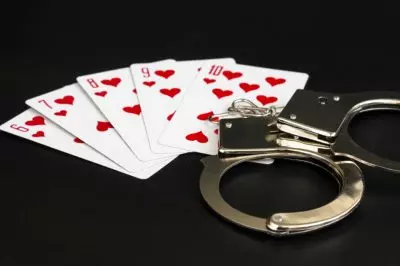 The Philippine police warned that the kidnappings related to the operations of casinos and Philippine Offshore Gaming Operators (POGOs) have surged to 42 cases this year. The number of abductions, involving mostly Chinese victims and kidnappers, have increased in the past few years due to the many offshore operators and casino players arriving in the country.
The Philippine police warned that the kidnappings related to the operations of casinos and Philippine Offshore Gaming Operators (POGOs) have surged to 42 cases this year. The number of abductions, involving mostly Chinese victims and kidnappers, have increased in the past few years due to the many offshore operators and casino players arriving in the country.
Data revealed by the Anti-Kidnapping Group (AKG) of the Philippine National Police shows that at least 75 kidnapping cases have been recorded in the past three years. All these abductions have been related in some way or another to land-based or online gambling activities and in all cases, the majority of victims and perpetrators have been Chinese nationals. According to the specialized police department, there have been 42 abductions linked to casino or POGO operations from January through November this year.
During this time, the police in the Philippines has rescued 29 victims of kidnappings, solved 27 cases, and arrested 88 suspects, AKG spokesman Lt. Col. Jowel Saliba said. However, not all cases have been reported to the authorities, the police point out, which means that more people have been probably kidnapped than what the official statistics show. The Anti-Kidnapping Group believes that the sharp rise in this type of crime is due to the influx of Chinese casino players and Chinese workers who started flocking to the Philippines since 2017.
Gambling is considered illegal in China, except for very limited forms of state-run lotteries. Casinos and casino games are not allowed, which is why a large number of Chinese-run casinos are operating in the Philippines. Known as Philippine Offshore Gaming Operators (POGOs), the foreign online gambling companies are based in the Philippines but cater to customers abroad. The POGOs are authorized and receive local licenses by the Philippine Amusement and Gaming Corporation (PAGCOR).
Since their arrival in 2017, the crime rate and the number of abductions have increased. According to the police, 17 kidnappings related to casino operations were recorded in 2017, followed by another 16 cases in 2018.
Different Motives for Kidnappings
 The Anti-Kidnapping Group of the Philippine National Police recognizes three types of kidnappings – kidnap-for-ransom cases, POGO, and casino-related cases. The first group of cases includes abductions of people for ransom but there is no other specific motive. When it comes to casino-related kidnappings, they usually involve Chinese nationals who play at casinos and accumulate serious debt from loan sharks.
The Anti-Kidnapping Group of the Philippine National Police recognizes three types of kidnappings – kidnap-for-ransom cases, POGO, and casino-related cases. The first group of cases includes abductions of people for ransom but there is no other specific motive. When it comes to casino-related kidnappings, they usually involve Chinese nationals who play at casinos and accumulate serious debt from loan sharks.
Interestingly, the victims are tourists from China who are invited by loan shark syndicates operating in the Philippines and run by other Chinese nationals. Once the tourist runs out of cash in the local casinos, these loan sharks would offer him a lot of money. This continues until the casino player cannot afford to pay the debt – he is then kidnapped and beaten. The kidnappers would then send a video to the family of the victim, asking them for ransom money.
POGO-related cases typically happen differently, however. In most cases, the perpetrators are the POGOs themselves or at least people, hired by them. Most Philippine Offshore Gaming Operators are Chinese gambling companies and they bring their employees from China – the company handle their visas and other travel documents, they are responsible for providing accommodation and even food. When workers arrive in the Philippines, however, they receive lower salaries, while the working and living conditions are much worse than what was promised.
Some of these Chinese workers attempt to flee the country and go home illegally since the gambling operators have their passports. When they try to escape, they are kidnapped by their employer and forced back to work.